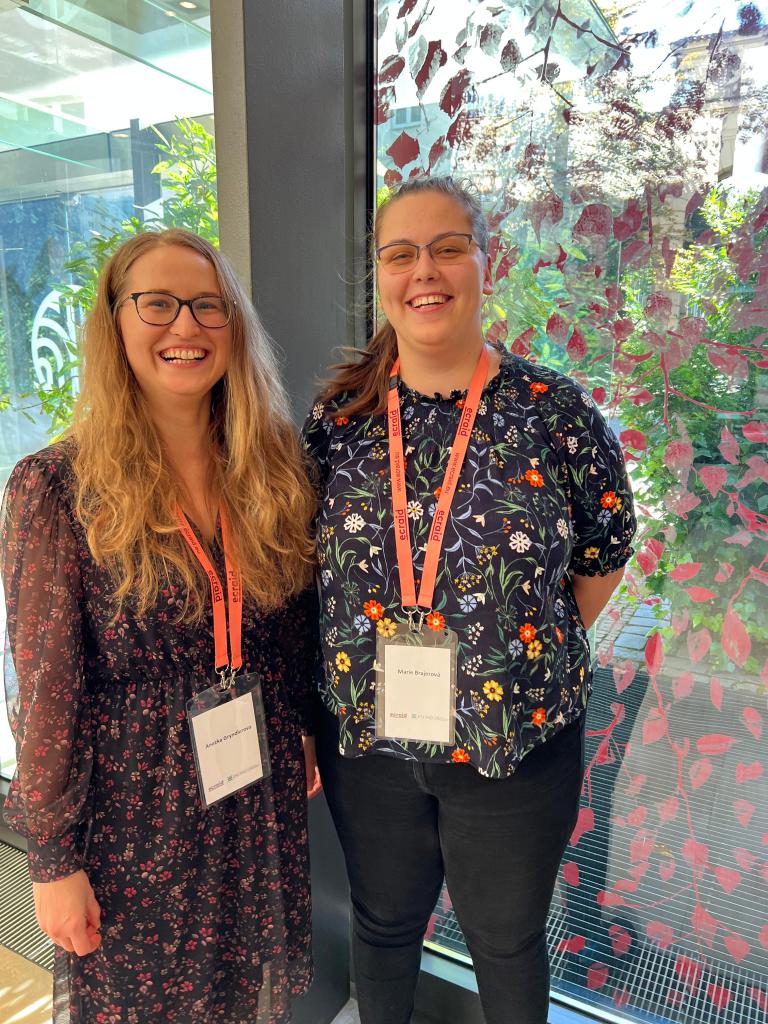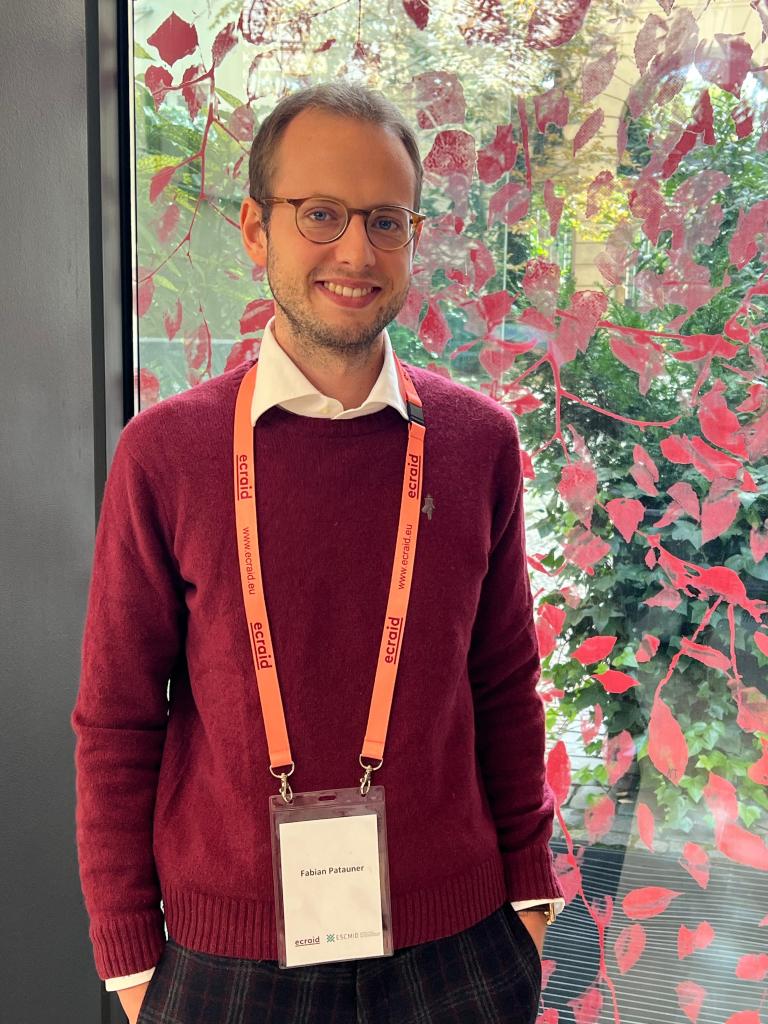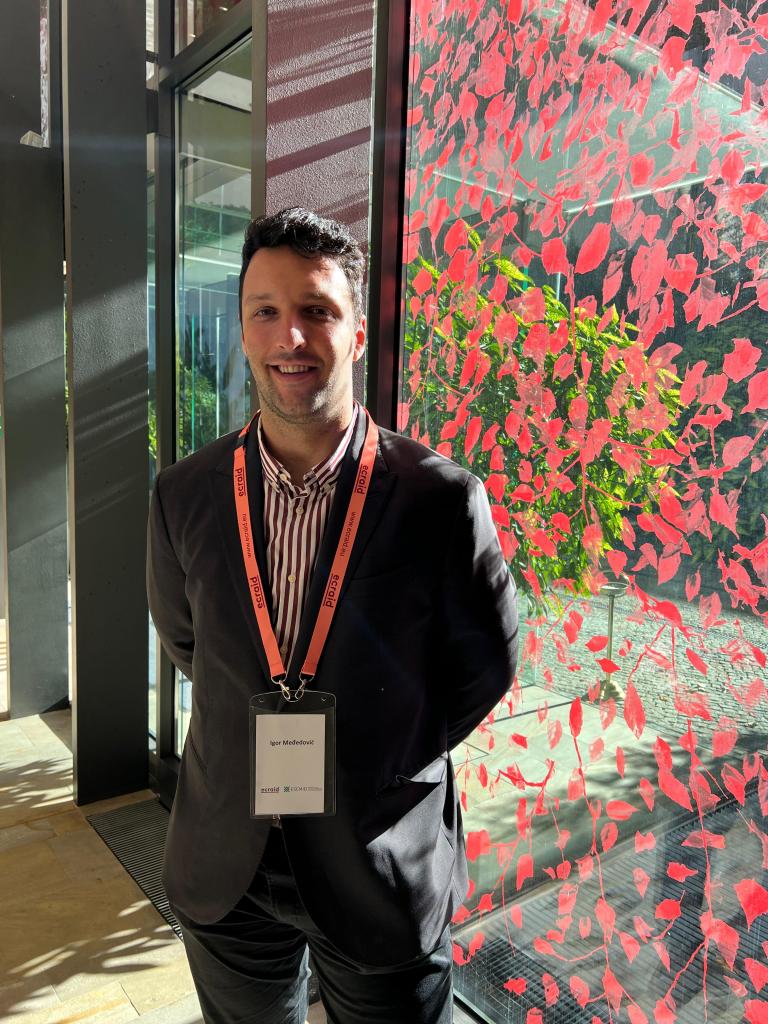Participants reflect on recent ESCMID course in Prague
This Autumn, the Czech capital hosted the second ESCMID postgraduate education course 'Better methods for clinical studies in infectious diseases and clinical microbiology'. We caught up with four participants to ask them about their impressions of the format, the content, and the city of Prague.
The three-day hybrid course, supported by the EU-funded ECRAID-Base project, was part of Ecraid’s sustained efforts toward equipping young investigators with the knowledge and skills required to conduct state-of-the-art clinical research in infectious diseases. As always, once the event had finished, we reached out to the more than 100 participants for feedback that can help us improve our future educational initiatives.
Next to the in-depth information collected via comprehensive questionnaires, we had informal chats with a four participant. They told us about their favourite sessions and lecturers, as well as the impressions that have stayed with them long after the final class was over. In the run-up to the winter holidays, we are delighted to share their stories with you.

Engaging with peers from around the world
All of our interviewees highlighted the interactive nature of the course. 28-years-old PhD student and Czechia native, Anežka Gryndlerová, was especially impressed with this aspect: “This was my first international course of this type, so the most valuable thing for me was the realisation that presenting your work and receiving feedback afterwards can be much more beneficial than just passively listening to lectures. Plus, I got some really good tips from other participants.” Her fellow Czech PhD student, Marie Brajerová, also felt that interacting with colleagues from different backgrounds helped her understand that there could be “different, yet equally valid approaches” to doing research.
For some, hearing about other young professionals’ projects and stories was genuinely inspiring, life-changing even. 34-years-old physician from Serbia, Igor Medjedovic, told us that “every young researcher I met there was dedicated, fully invested in and hopeful about their work, without a hint of ego. This gave me renewed hope, not only in biomedical research, but in healthcare in general. It also led to a very personal realisation that I do want to expand to research work in my career, and that there is an energetic and nurturing community of people I wish to consider my peers.”
Photo on the left: Anežka Gryndlerová and Marie Brajerová
Personal favourites
When asked about the lecturers and sessions that had impressed them the most, our interviewees agreed that all faculty members had done a fantastic job. They did have personal favourites, though.
Fabian Patauner, a 30-years-old Italian PhD student and resident of internal medicine, told us that there was no boring lesson. Yet “the presentation that impressed me the most was Marc Bonten’s ‘Using stats as an MD: Learning by mistake’. I liked how he showed us that even an experienced researcher can make mistakes. What’s important is that we use our own mistakes to learn and improve rather than focus on the setbacks.”
Anežka picked a session by another Dutch researcher because of her personal interest in the topic: “My personal favourite was Mariska Leeflang´s ‘Systematic reviews of diagnostic tests’. It was very clearly presented and for me, a future clinical microbiologist, the topic is very important.”
Photo on the right: Fabian Patauner


“The lecturer that certainly left a lasting impression would be Henri van Werkhoven,” said Igor. “All of his lectures were very easy to follow and held my interest throughout, even when on topics I was previously completely unacquainted with. His own approachability and openness for discussion made them more attainable and welcoming for people without a strong scientific background.”
(Re)discovering Prague
Unsurprisingly, non-Czech Igor and Fabian were enchanted by Prague’s charm. Igor told us that his experience of Prague can be best described as “rereading a favourite book. Each time I find another layer and as I get to know it better, I learn to appreciate it even more.”
This was Fabian’s first encounter with the book of Prague, but he seemed just as eager to revisit it. “I am sure that I will return to Prague as a simple tourist.”
Photo on the left: Igor Medjedovic
This course is a collaboration of Ecraid and ESCMID and is supported by the EU-funded ECRAID-Base consortium which has received funding from the European Union’s Horizon 2020 research and innovation programme under Grant Agreement No. 965313.